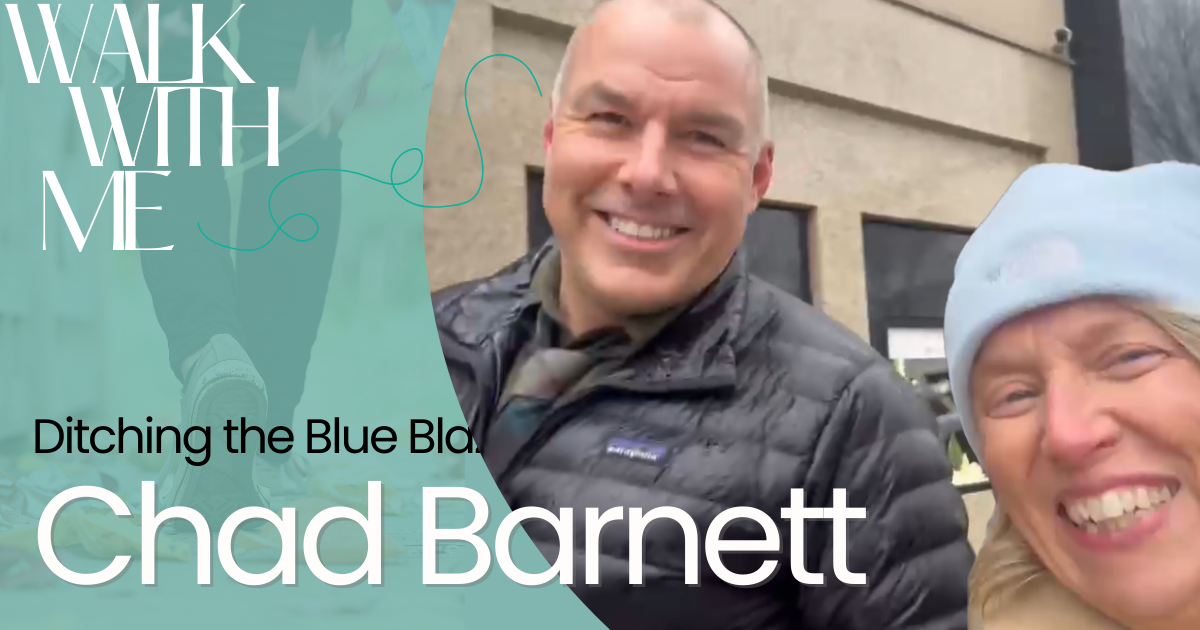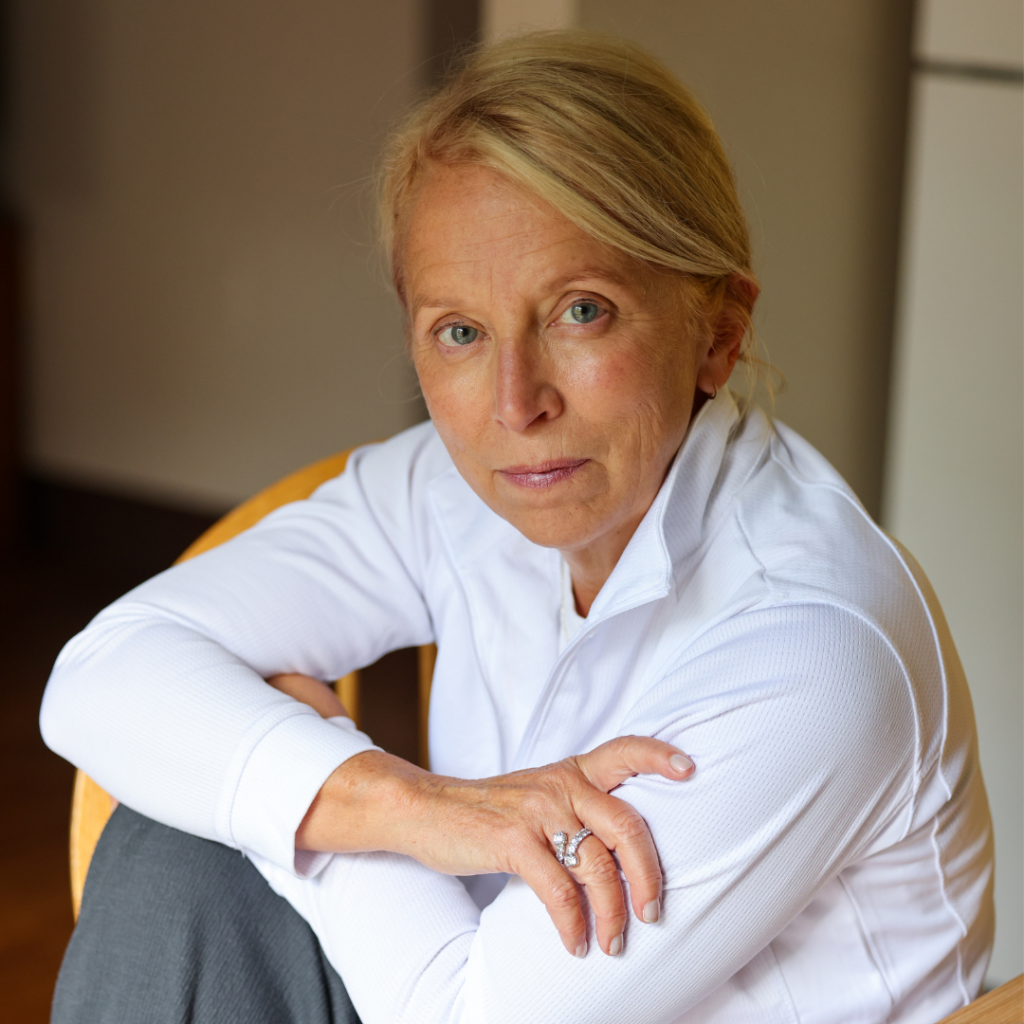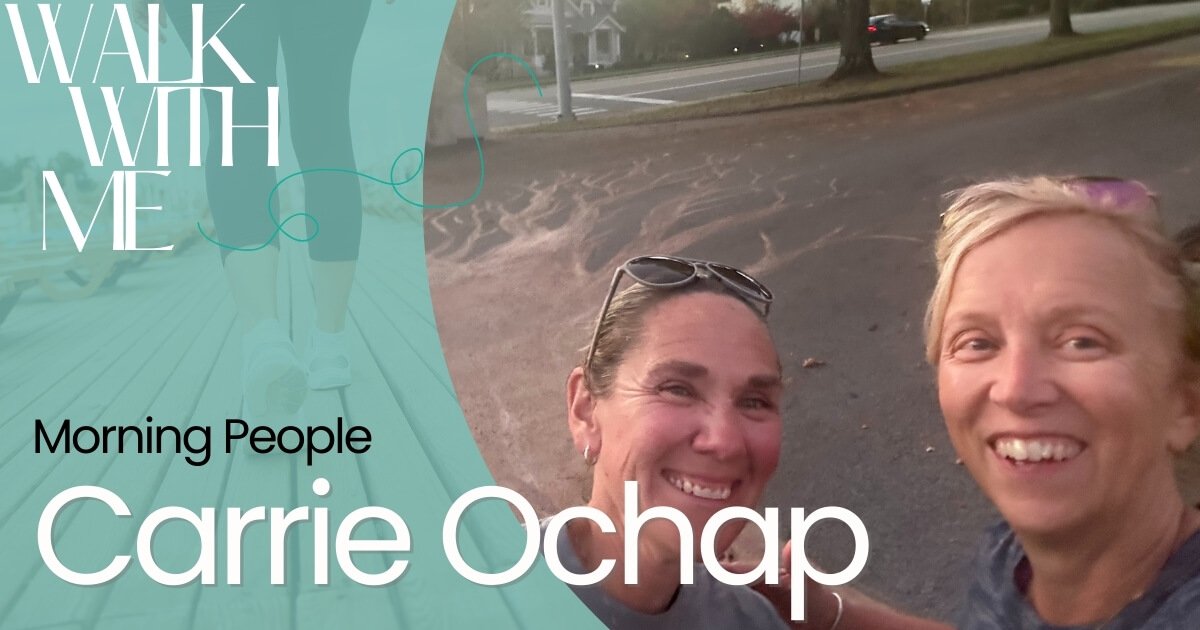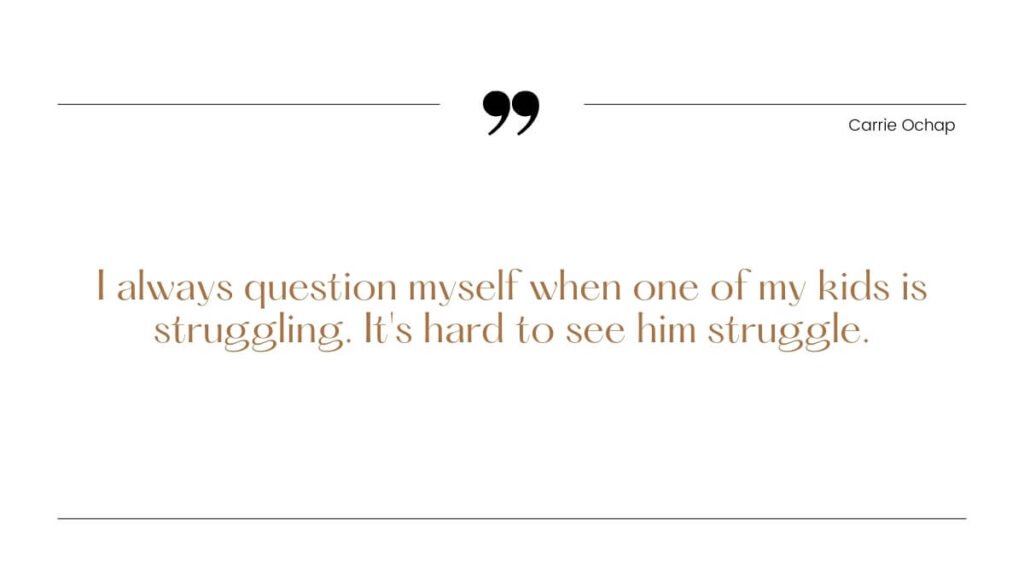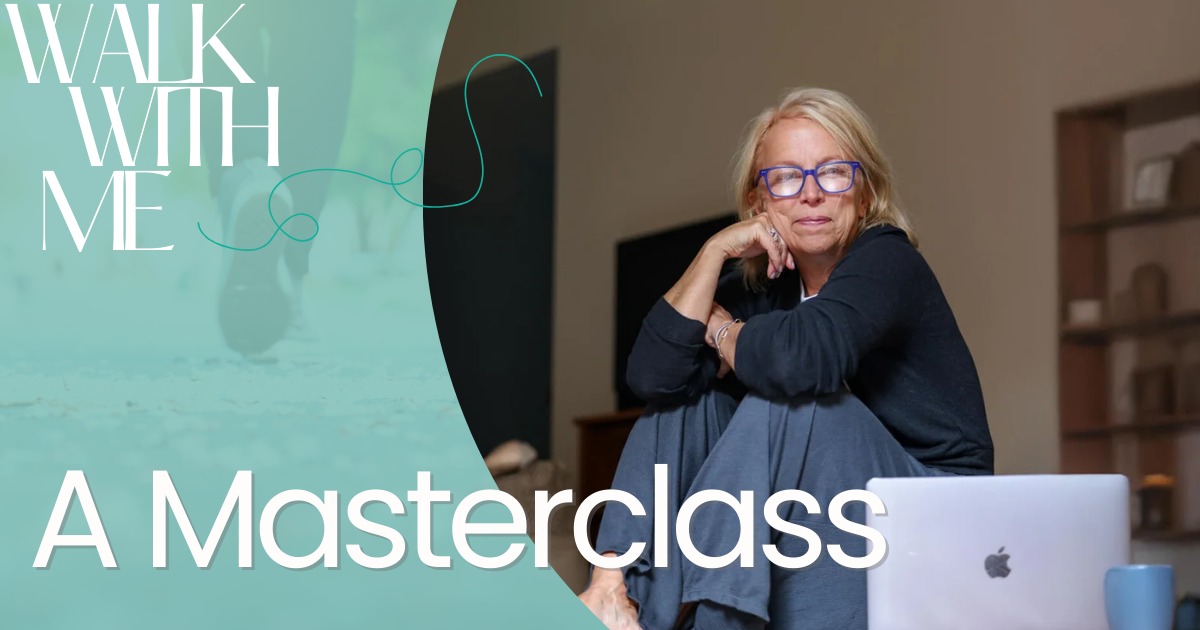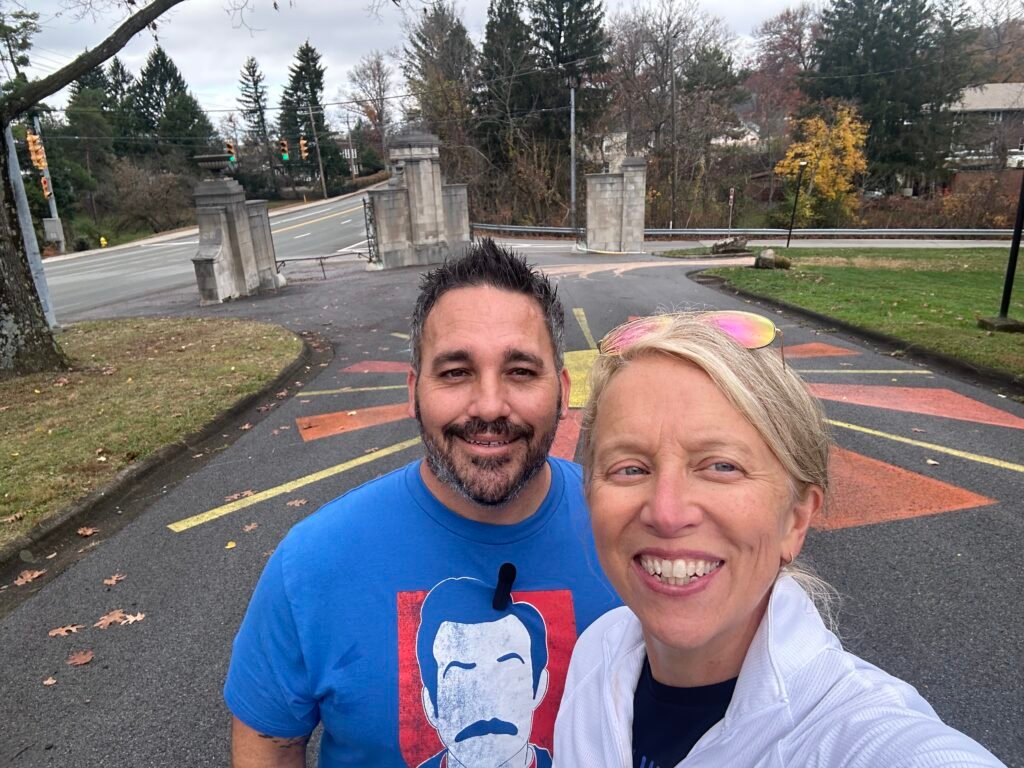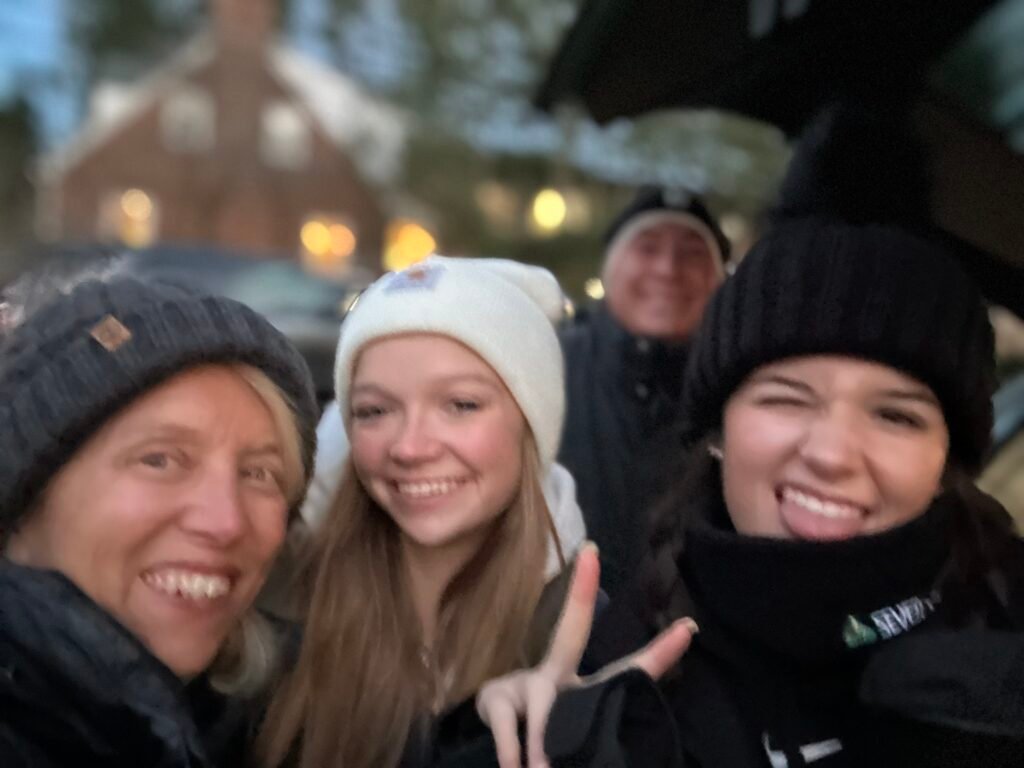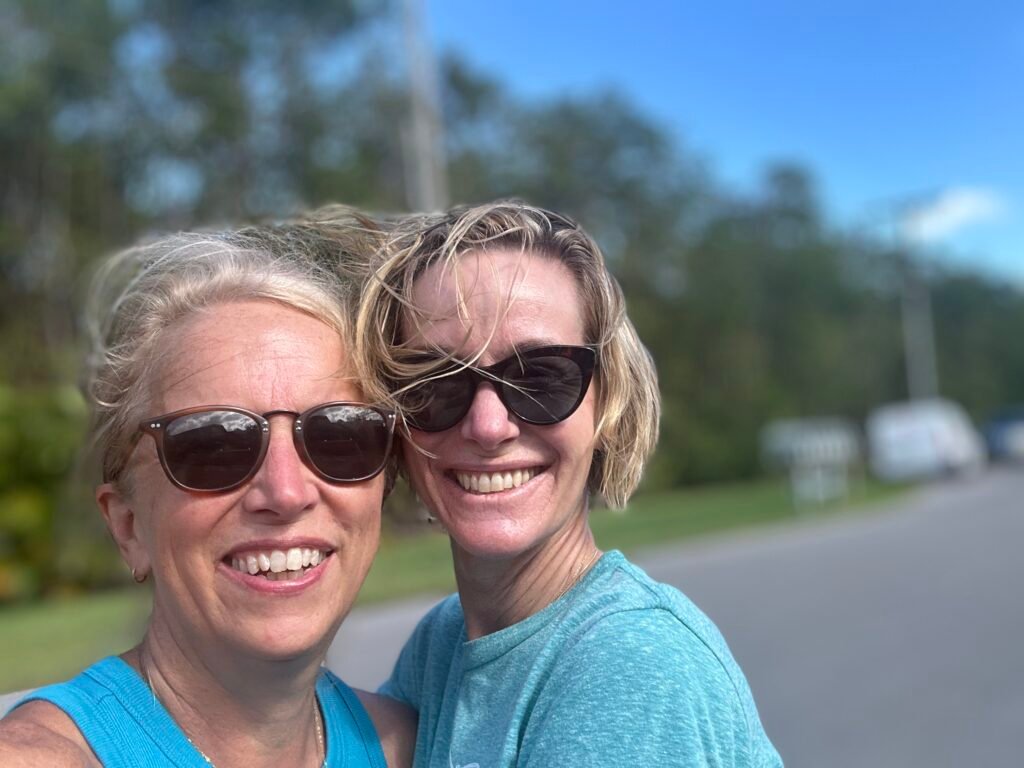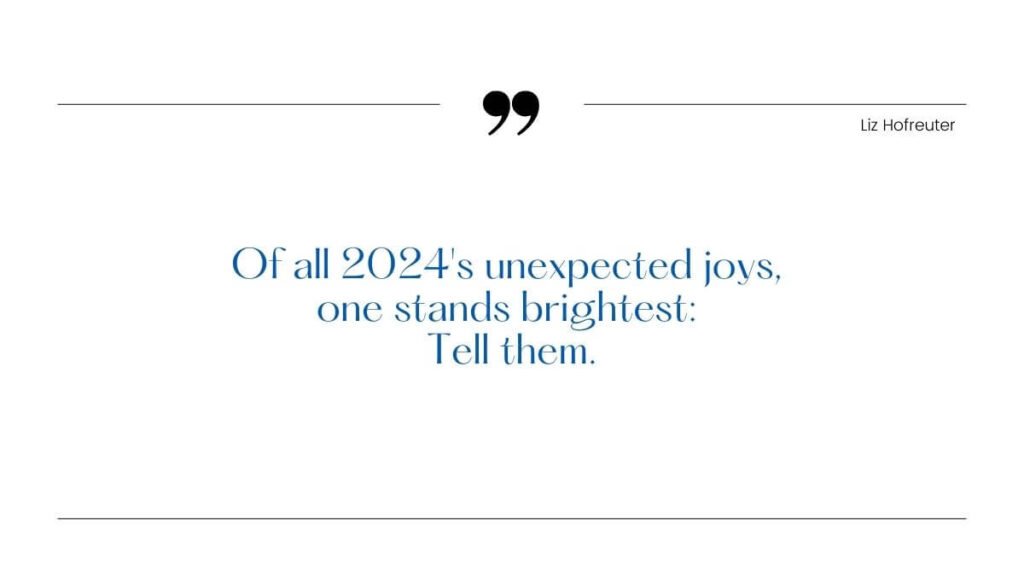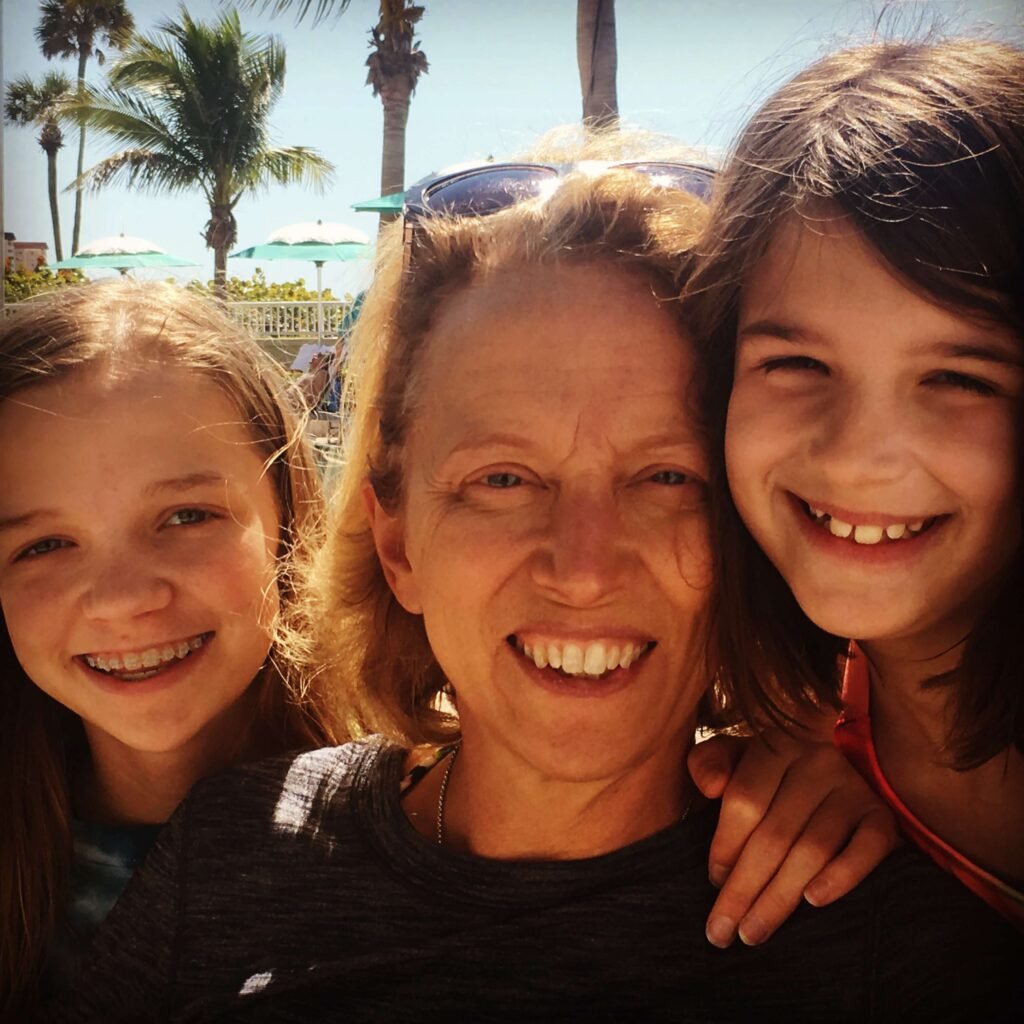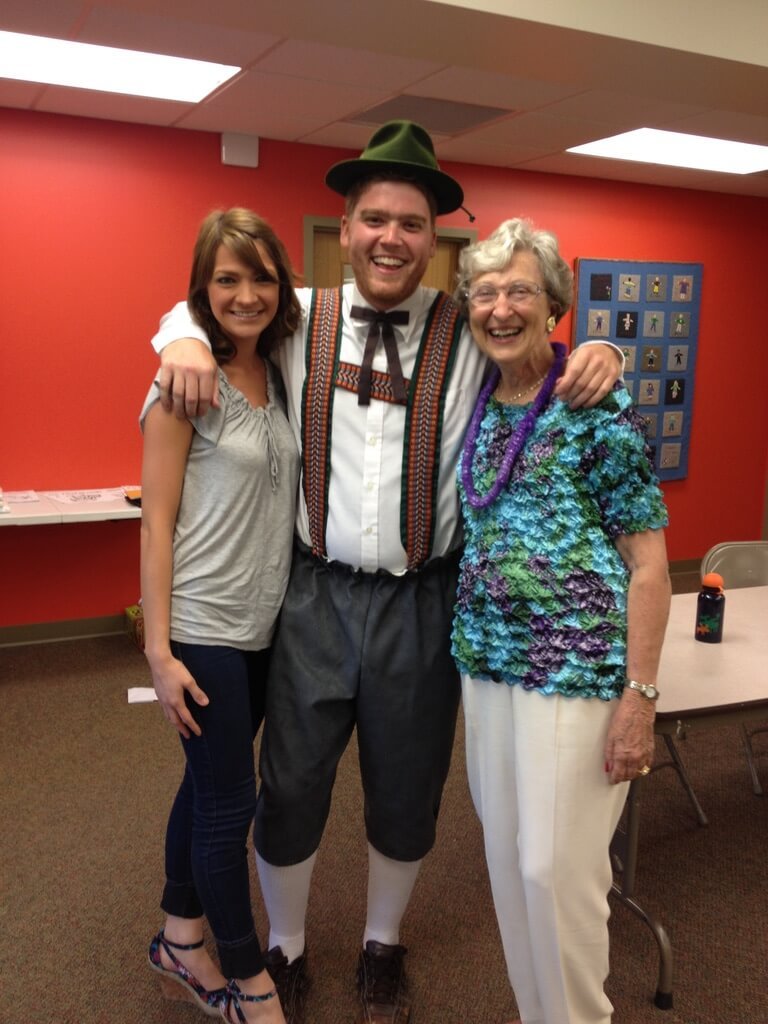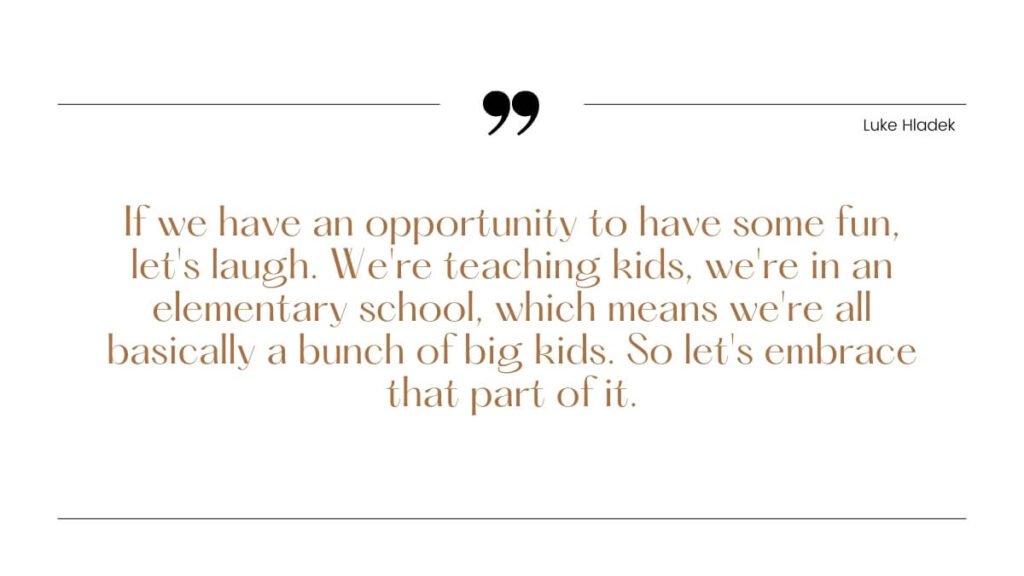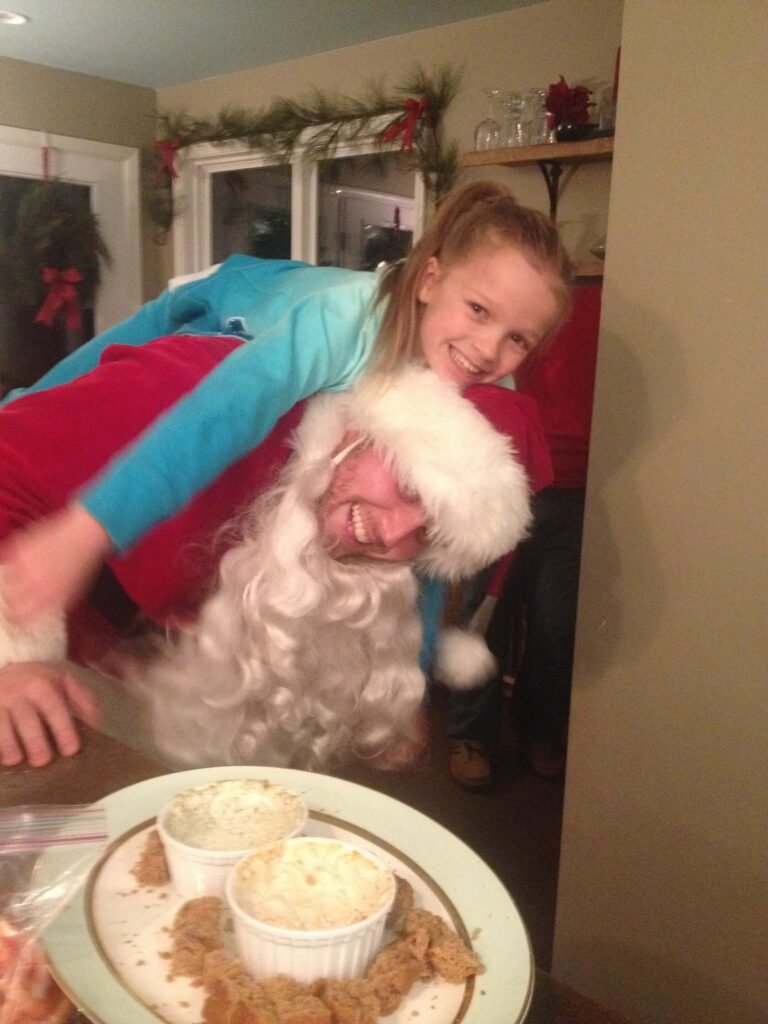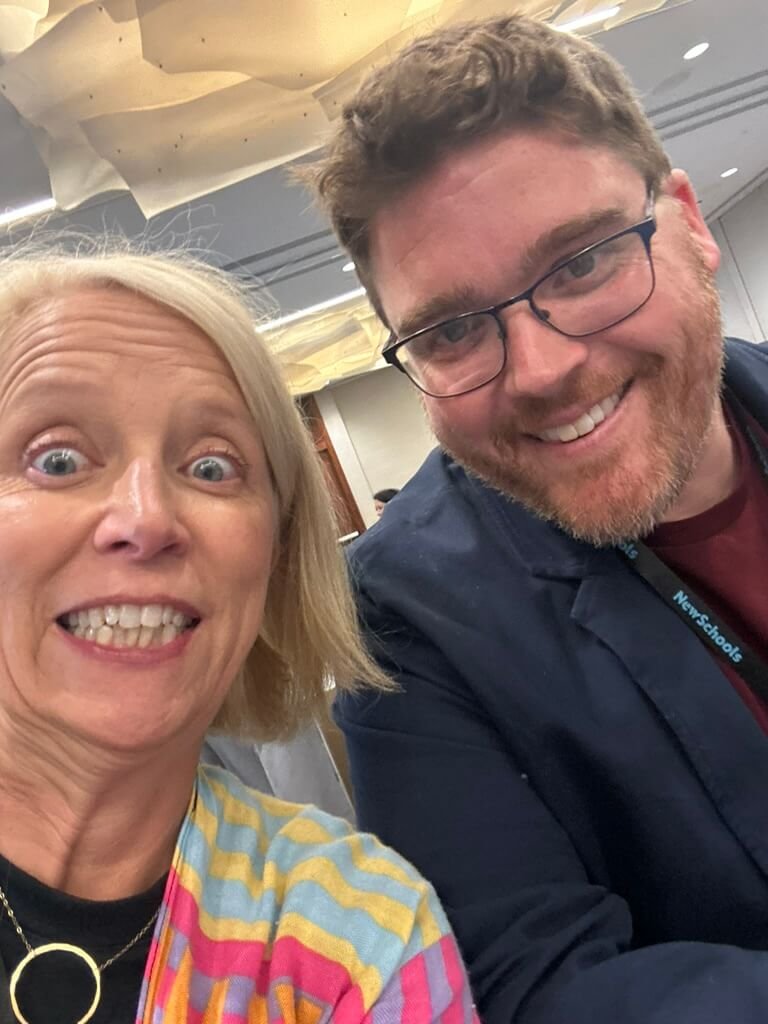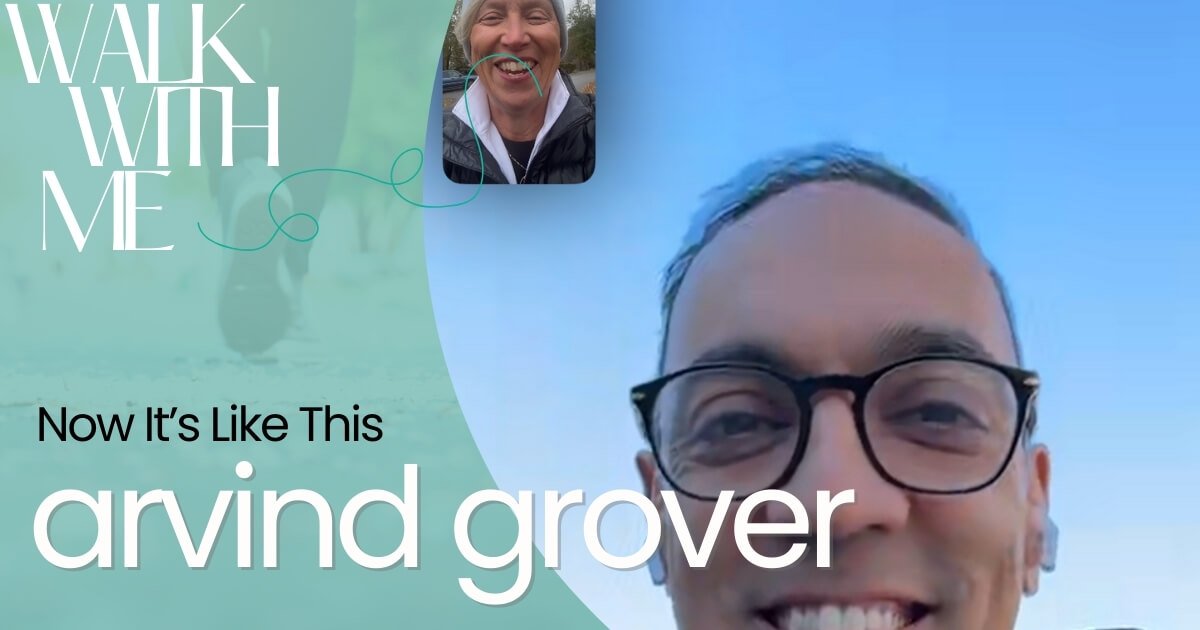Chad Barnett has changed… for good. While we have talked on the phone at times, we haven’t seen each other for many years since I last visited him at St Edmund’s Academy in Pittsburgh, PA. Instead of meeting on the playground of this independent school, he met me out front. I didn’t recognize him. Gone was the independent school uniform of a blue blazer and khaki pants. As my steps quickened toward this friend and former English department colleague, I was taken aback by his appearance.
No blue blazer? I asked.
“Nope.”
In its place: a tweed waistcoat, fitted and purposeful. His collar was open, the thin cotton tie loosened—not as a statement, but as a practical outcome of a day spent in a school where movement and play are part of the work. His shaved head, humble and purposeful, spoke to a quiet rejection of pretense—a clarity shaped by walking beside others, not ahead of them. The hiking boots beneath it all were built for steady footing, a reminder that leadership isn’t about standing apart, but about grounding yourself in the work and the community that carries it forward.
It’s a look that might catch the students we know in common from our days at The Linsly School off guard. But to them, I’d say: it fits. It reflects a kind of leadership that contains multitudes—high standards paired with humility, strength balanced with openness, resilience shaped by a respect for differences and an appreciation for growth.
It’s not a look worn for appearances, but for movement. Not to stand above, but to walk with—lifting, supporting, and steadying what matters most. Leadership, here, is an ongoing practice—grounded, enduring, and fully present.
By ditching the blue blazer, the identity and uniform of an idealized “school man,” Chad was becoming more himself. His presence, his energy and the cadence of his words were all more authentic. He spoke of the ways he tried to live up to expectations – seeking approval from paternal role models. He spoke of the long road that led to his marriage to Alice. He spoke of failures from which he had learned. Still, I venture to say what most inspired such change … Hugo.
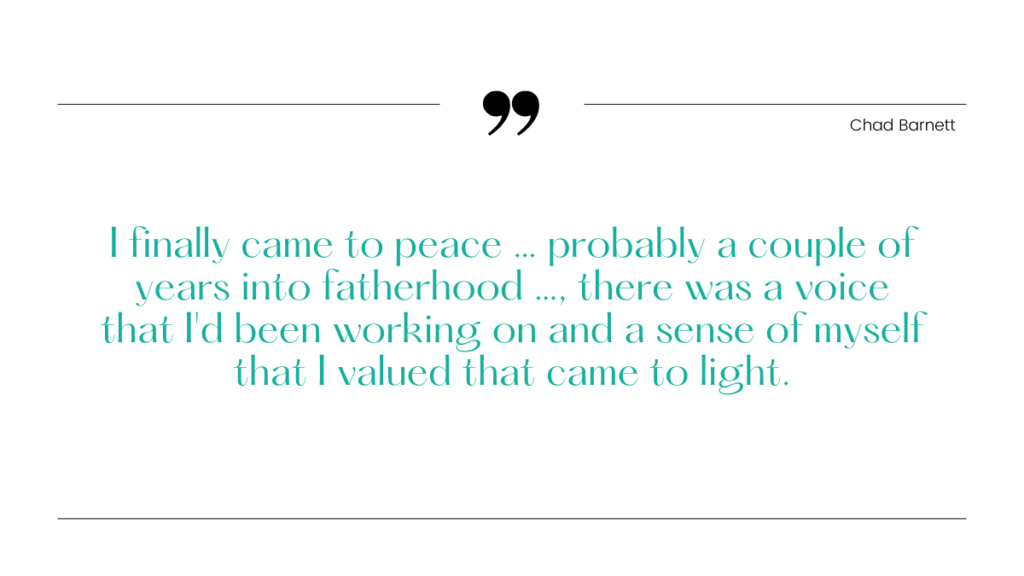
I met the inquisitive and loving five-year-old on his birthday. It was rest time. If you are a PreK – 8 Head of School, you know this is a sacred time not to be interrupted, yet we walked through the contorted bodies of preschoolers sprawled on mats on the floor. We Heads of School tend to disrupt like that. When Chad finally folded himself into a chair much too small for his frame, I met Hugo. His eyes lit up when he saw his dad. The two collapsed into a hug. The intimacy of the moment in the midst of the school day was a gift for this birthday boy and his father.
Chad: There’s nothing like it.
Liz: Does the world go into slow motion?
Chad: For sure. And it’s never lost on me that the journey to that was long and winding and tricky.
Liz: So is that partially why you can be present in that moment? Because it was long and tricky?
Chad: Yeah, you know, because it’s just never lost on me that I waited a long time for it. And, you know, along the way there was always something missing. And you don’t quite know what that is. And I don’t know that it’s completely solved now, but I know that that little boy takes me a lot farther than where I was.
I fully understand. I waited a long time for it. I often say that my world was changed as soon as they placed Grace in my arms -but that’s nothing but flowery language. It is not accurate. I didn’t get to hold Grace for days after she was born. I first laid eyes on her the day after she was born – not minutes. She was in an incubator and I was wheeled next to her in a hospital bed. I reached my IV-laden hand past her tubes and wires and touched her skin gently at first – as if I needed to make sure she was real. Unbelievably, she was mine. From that moment on I had one job and one title in this world – mother. Every successful element of school leadership was born from a selfish impulse to make things the best I could or the best I wished they could have been for Grace and later Ella.
Chad understands this. Fatherhood changed him …for good.
Chad: In ways that are maybe even bigger than I would have wanted to admit, because I always felt like, even though I wasn’t a parent, because I’d been a dorm parent and because I felt like I really knew kids, that I understood what parents were going through. But I can look back now and say I knew it conceptually, but I didn’t know it at all emotionally. And I think that led to a head of school that was a little bit more clinical, a little bit more objective. I led with the head and not with the heart.
By leading with the heart, we transform organizational cultures from mechanistic systems into living, breathing communities of mutual growth. This leadership approach demands continuous personal work—a willingness to confront one’s own emotional landscapes and to heal personal wounds that might unconsciously color interactions. This personal work cultivates a radical empathy that sees beyond surface-level behaviors to the underlying human needs and vulnerabilities.
In watching Chad work with a group of students, I witnessed the profound difference between protocol and presence. His approach transcended a traditional disciplinary playbook. As students voiced their concerns, Chad created a space where time seemed to expand. Rather than rushing to solutions, he guided them through layers of comprehension – from the visible behaviors that troubled them to the hidden struggles that might spark any unwanted actions. Each question he posed served as a bridge, helping students cross from judgment to understanding. Chad’s leadership was so much more profound than the reflexive reach for the metaphorical blue blazer of authority and compliance.
Liz: Now, did the blue blazer stop at the same time as becoming a dad?
Chad: The blue blazer stopped when I allowed myself to be myself.
Liz: And was that associated with becoming a dad?
Chad: I think it was probably a bit after that because I think the first part of the experience of becoming a dad was like, oh, crap, I can’t screw this up, because if I screw it up this time, it’s more than just me. So I probably buttoned the blue blazer just a little tighter initially just to make sure I was getting it right.
And then I finally came to peace … probably a couple of years into fatherhood … there was a voice that I’d been working on and a sense of myself that I valued that came to light. At a school that emphasizes as a core value and understanding and appreciation of differences among people, we shouldn’t all look the same. And there are lots of ways to lead and there are lots of voices that can lead. You know, we come in all shapes and sizes. And the Navy blazer is not evidence of credibility.
As Chad grew to admire and appreciate who he was and what he had to offer, he didn’t need the blue blazer. He literally shed the trappings and entanglements of the role of Head of School. At his heart, he was enough. His first son had been the “Living Proof” he needed.
Oh in a world so hard and dirty
So fouled and confused
Searching for a little bit of god’s mercy
I found living proof
Well, I put my heart and soul baby
I put ‘em high on a shelf
Right next to that faith
Faith that I’d lost in myself
Forgive me, but I cannot write about Chad Barnett or his son Hugo without a nod to The Boss. Chad is an avid Bruce Springsteen fan, therefore Hugo is too. At a recent concert Bruce knelt down to give a young boy his harmonica – it was Hugo. This brush with fame adorns the headmaster’s office walls. I imagine it must be somewhat shocking for a student to sit in Chad’s office and know how cool Hugo and his dad are.


Unlike other items on his office shelves, one book sits with its cover facing forward. I was drawn to it as soon as I walked in, for it was illustrated by Peter Reynolds – a man whose art touches my heart as it manifests the power of children. The title reads I am Human. It affirms that we can make good choices by acting with compassion and having empathy for others and ourselves. Seems so fitting that Chad should look up at it everyday. What makes it even better – it was a gift from a child.
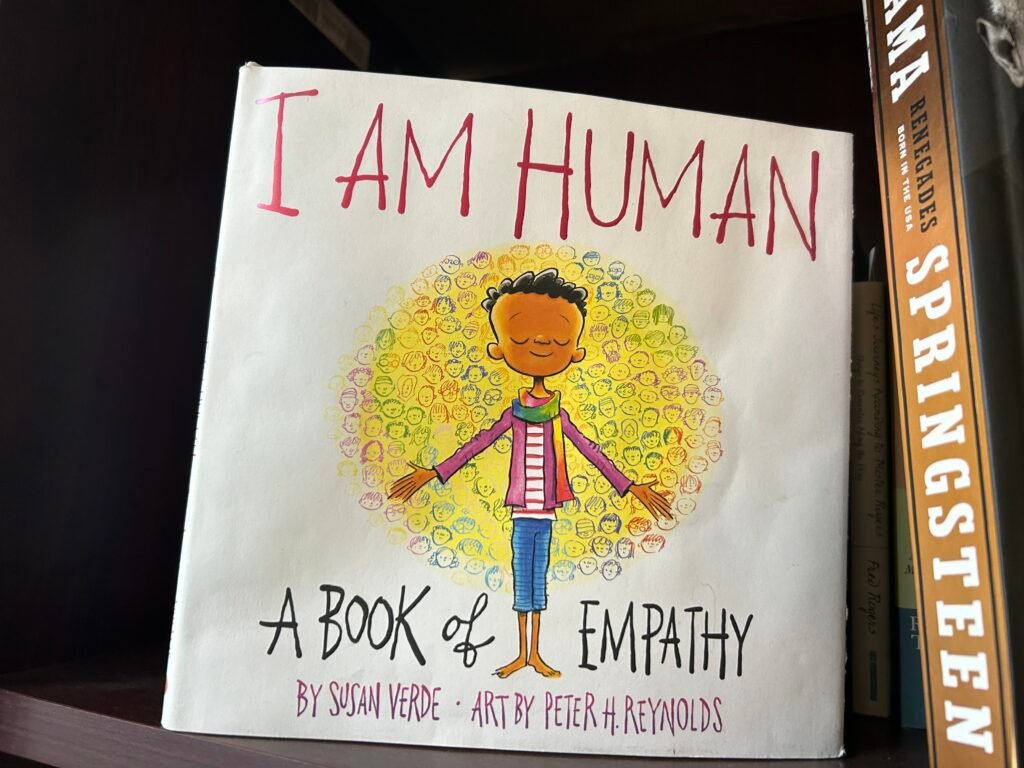
As Chad mentioned, his school values diversity. That mission was challenged and strengthened in 2018 when 11 congregants were killed at The Tree of Life synagogue – mere blocks from school and visible from Chad’s home. As a community leader, Chad felt the responsibility to respond with compassion and education. St Edmund’s made a calculated effort to teach and value the respect and kindness necessary in a school with great diversity drawing students from nearly 50 zip codes. In the midst of this work a young girl had the courage to ask Mr. Barnett to borrow some money. She had come to school without any book fair money and there was a book she wanted. As a fellow English teacher, Chad is not one to turn down a request to read, so he handed her the folded $20 bill he had in his pocket.
Moments later she arrived back in his office and presented him with I Am Human. Maybe she knew he was on the precipice of transforming into a school man who led from the heart and not the head. Perhaps she was aware that even a Head of School deserves to know that he is seen and valued for being just who he is. Children know. They are our wisest teachers.
Chad: The voice inside my head speaks up and says “he” doesn’t value your authority. He doesn’t think you’re smart. He doesn’t think you’re good enough. And I now am very familiar with that voice. And I know how to acknowledge it and how to let it go. And that, I think, has allowed me to have a lot of calm confidence.
Liz: What are the words that you use either internally or actually speak when you acknowledge that little liar in your head.
Chad: Sometimes I just sort of laugh or I’ll say, hey, I hear you. You’re back. And I do treat it as a bit of an old friend but not one who’s ever in the driver’s seat anymore.
There is a frame of four men on his desk – Frank Boyden, Jack Pidgeon, Reno DiOrio and himself, Chad Barnett. Alice made it for him. It is a point of pride that she sees him in the lineage of the school men whose authority and leadership Chad admires. I see the value that he is continuing a tradition of excellence in school leadership differently. Chad is different – he has all the best qualities of the long tenured heads who came before him, but now he marches (in his hiking boots without his blue blazer) to his own drummer. Dare I say it is Max Weinberg of Bruce Springsteen’s E Street band?
I know we are a better independent school community when our heads of school know themselves and show up with an authentic presence within their schools. Chad is living proof.

